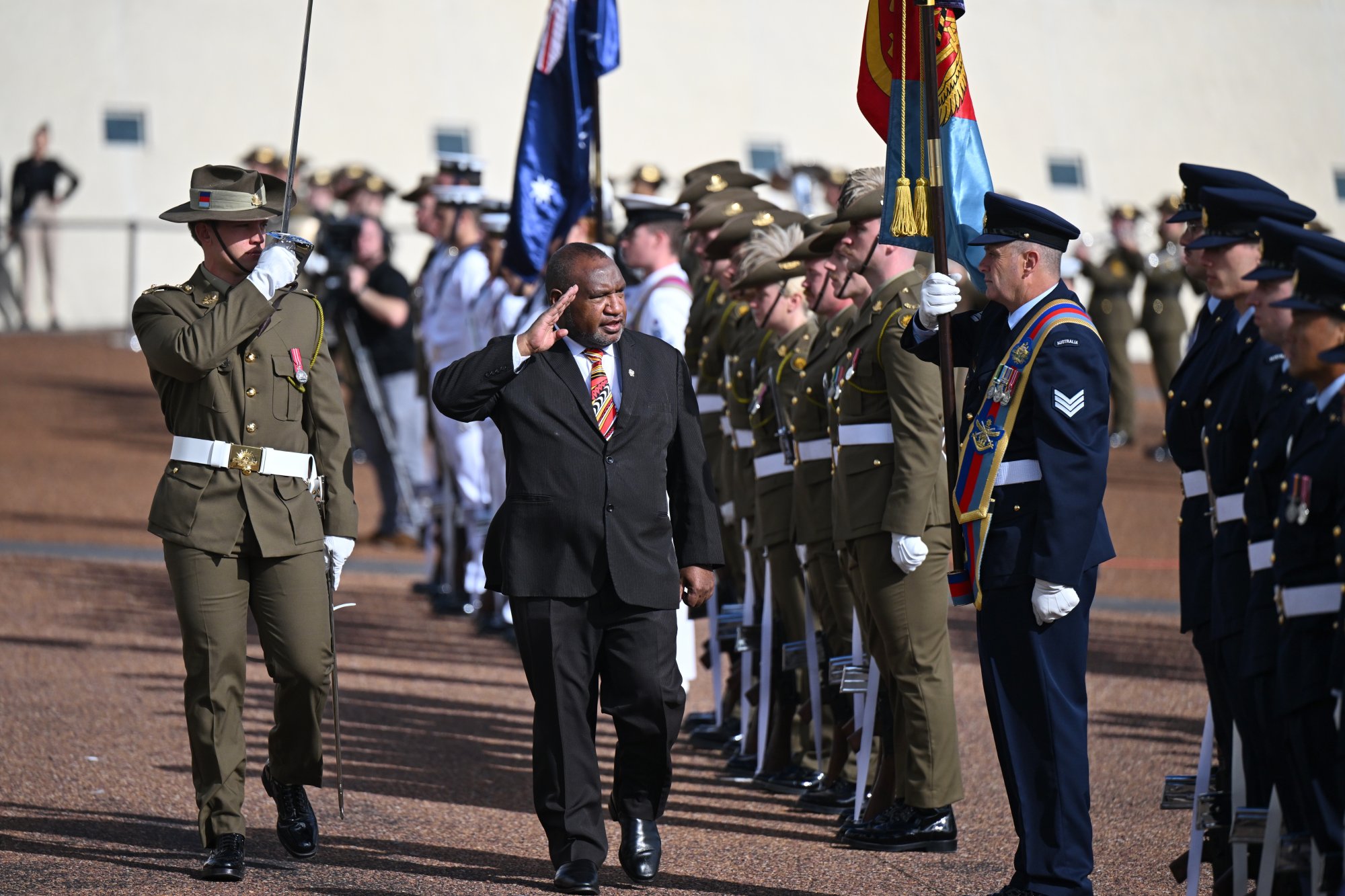
Australia hopes to ‘really elevate’ ties with Papua New Guinea amid China concerns, extends rugby diplomacy
- In a soft-power move that is becoming a staple in the Australia-PNG relationship, Canberra will extend funding of PNG’s professional rugby team in the Queensland cup
- PNG Prime Minister James Marape asked Australia not to ‘give up’ on his country, saying it would continue with structural reforms

Australia’s Foreign Minister Penny Wong on Thursday said Marape’s speech and Australian Prime Minister Anthony Albanese’s speech in the PNG parliament last year – a first by a foreign leader – were critical as both countries sought to “really elevate” their relationship.
She said there had been a “decade of inaction” from the previous government in relation to Australia’s relationship with its Pacific neighbours and Australia must now work harder, given greater competition in the region stemming from China’s growing influence.
“We live in a different era, and we’re not going back to where we were … what we are doing is re-emphasising our part in the Pacific family and the importance of that engagement, and you’re seeing that today,” she said.
Australia pushes for PNG security pact to counter China’s Pacific influence
Reinforcing the need for stronger relations with the Pacific nations and other countries and to avoid being blind sided by new powers in the region, Wong and shadow foreign minister Simon Birmingham on the same day launched a new paper that called for Canberra to adopt a whole-of nation foreign policy, not one that was executed by just “one arm of government”.
“It’s not just up to our diplomats in the world. It starts with who we are as a country, our first nation’s history, our multicultural fabric, our institutions, business, academia, and civil society,” Wong said.
The Asia-Pacific Development, Diplomacy & Defence Dialogue (AP4D) that prepared the report through consultations with over 90 multidiscipline organisations, said Canberra must avoid “foreign policy autopilot” and implement an international policy that also involved non-government organisations such as business, NGOs, community and diaspora groups, and sports.
Other reports such as Australia’s new Defence Strategic Review had previously also called for a better whole-of-nation approach to foreign policy.

Australia’s support of Papua New Guinea’s rugby league performance was an example of “recognising all the tools of statecraft Australia has to build friendship and connections”, through sports in this case, AP4D executive director Melissa Conley Tyler said.
A welcome reception for Marape that included attendees from various non-government sectors held by Canberra on Wednesday night before his speech was a step in that direction, Tyler added.
In a soft-power move that is quickly becoming a staple in the Australia-PNG relationship – which embodies this whole-of-nation model – Canberra on Thursday announced it was extending the funding of PNG’s professional rugby team, the PNG Hunters’ participation in an Australian rugby league competition, the Queensland Cup.
Canberra would also help PNG establish a national women’s rugby competition.
Marape was expected to discuss the funding on his trip to Canberra.
Local analysts have commended Canberra’s support for PNG’s rugby as a key to strong friendships.
“Deploying rugby league to defend Australia’s interests is unconventional geopolitical strategy … sponsoring a team in rugby league-mad Papua New Guinea is the simplest – and by far cheapest – option to secure Australia’s vital northern sea approaches from Chinese Communist Party domination,” Fulbright scholar Misha Zelinsky said in an analysis last year.
Conroy also reinforced that Australia was PNG’s primary security partner and has a “strong policing cooperation” with PNG. Late last year, the two countries signed a historic security pact on policing, defence and the judiciary.


